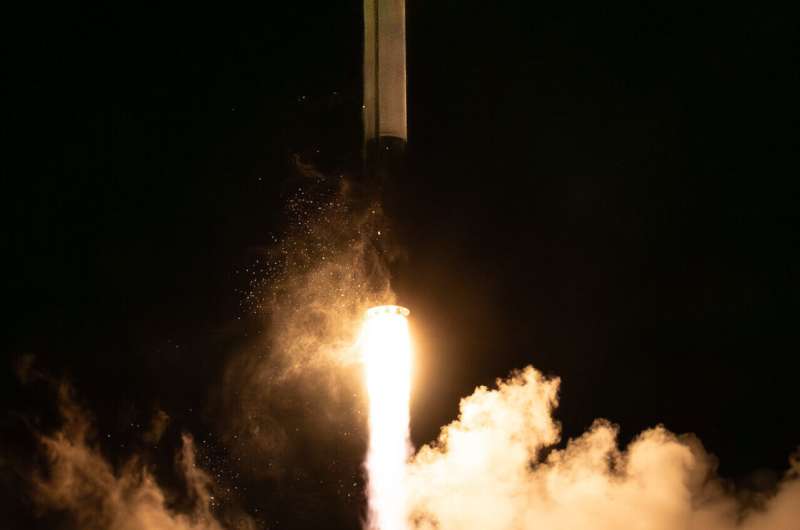Rocket Lab’s Electron rocket lifted off from Launch Complex 1 at Māhia, New Zealand at 7:41 p.m. NZST May 25, 2024 (3:41 a.m. EDT) carrying a small satellite for NASA’s PREFIRE (Polar Radiant Energy in the Far-InfraRed Experiment) mission. Credit: Rocket Lab
A tiny NASA satellite was launched Saturday from New Zealand with the mission of improving climate change prediction by measuring heat escaping from Earth’s poles for the first time.
“This new information—and we’ve never had it before—will improve our ability to model what’s happening in the poles, what’s happening in climate,” NASA’s earth sciences research director Karen St. Germain told a recent news conference.
The satellite, which is the size of a shoe box, was launched by an Electron rocket, built by a company called Rocket Lab, which lifted off from Mahia in the north of New Zealand. The overall mission is called PREFIRE.
The company is later to launch a similar satellite of its own.
They will serve to take infrared measurements far above the Arctic and Antarctic so as to measure directly the heat that the poles release into space.
“This is critical because it actually helps to balance the excess heat that’s received in the tropical regions and really regulate the earth’s temperature,” said Tristan L’Ecuyer, a mission researcher affiliated with the University of Wisconsin, Madison.
2024-05-25 16:00:02
Article from phys.org




















